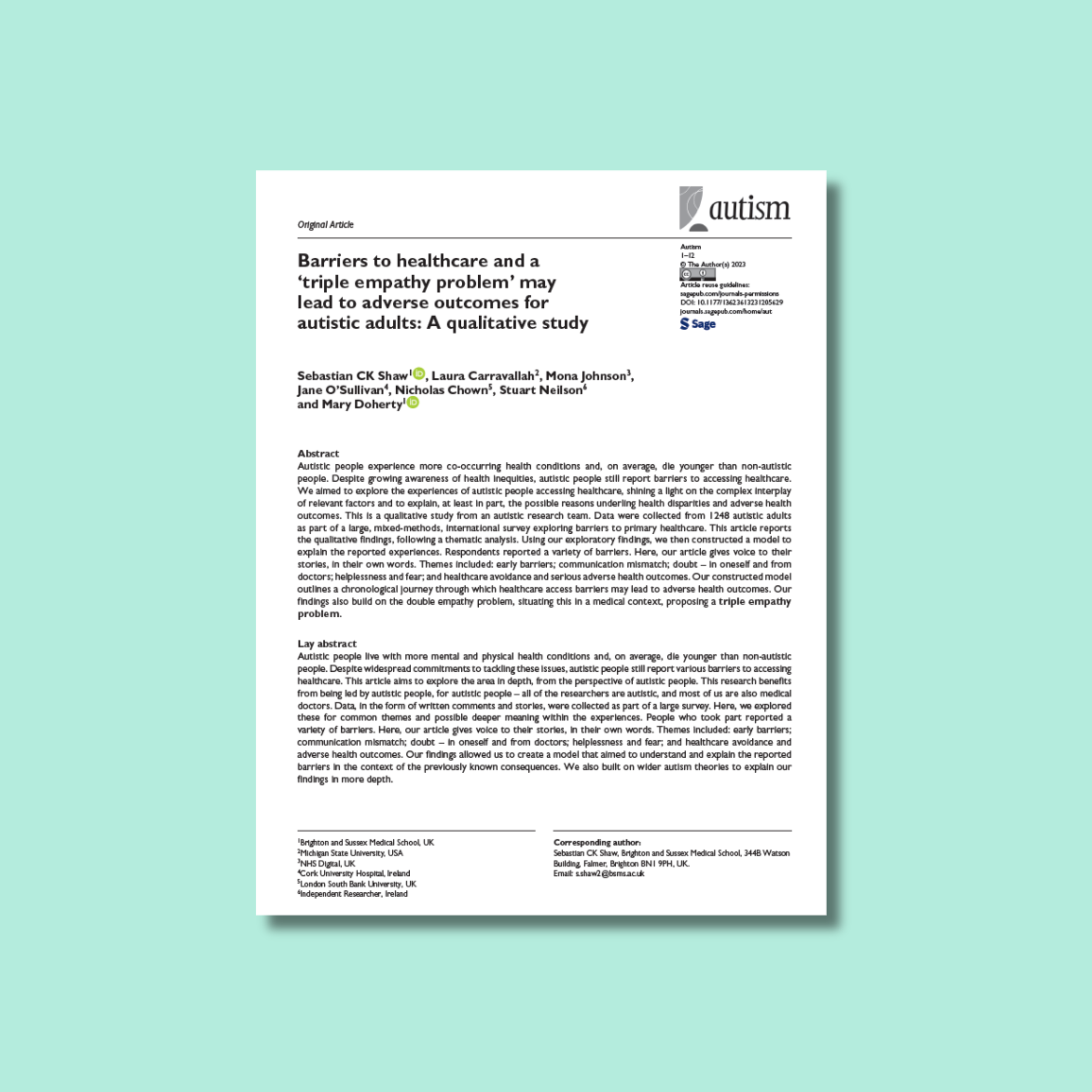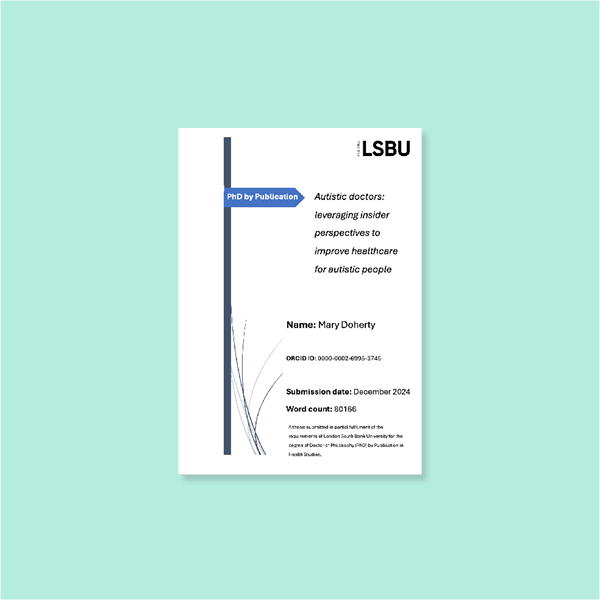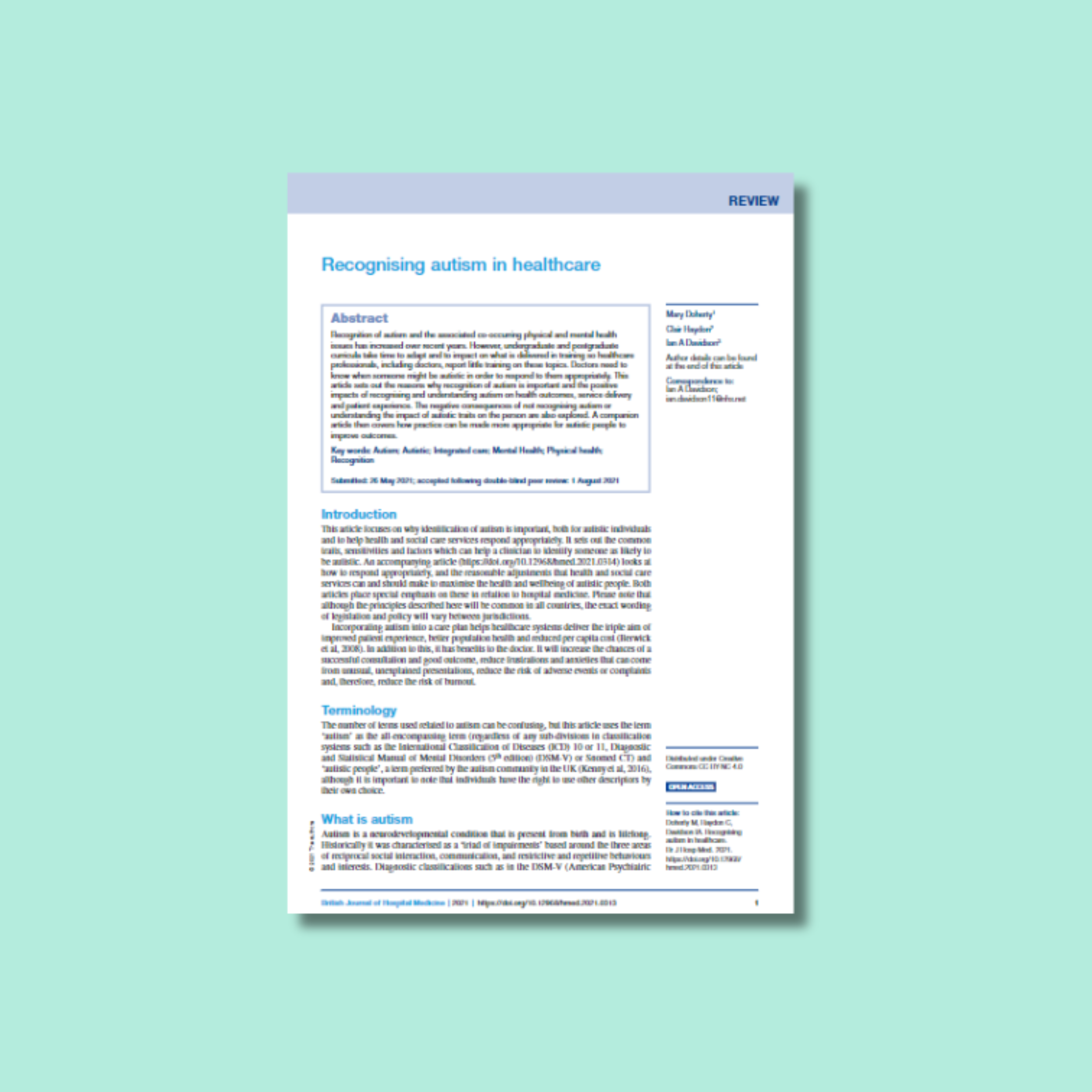 Image 1 of 1
Image 1 of 1


Barriers to Healthcare and a ‘Triple Empathy Problem’ May Lead to Adverse Outcomes for Autistic Adults: A Qualitative Study
Shaw, Carravallah, Johnson, O’Sullivan, Chown, Neilson & Doherty (2023)
There is a growing awareness of health inequalities faced by Autistic people, they are more likely to have co-occurring health conditions and, on average, die younger than non-Autistic people. Despite this Autistic people are still reporting barriers to accessing healthcare. This research explores the experience of Autistic people accessing healthcare and the possible reasons for the health disparities and adverse health outcomes. The Autistic research team used a qualitative method to conduct their research. Data was collected as part of a large, mixed-methods, international survey exploring barriers to primary healthcare; 1248 Autistic adults took part. This article focuses on the qualitative findings of that larger study. The authors used a thematic analysis to create a model to explain the reported experiences. The findings reported a range of themes included: early barriers; doubt – in oneself and from doctors; communications mismatch; helplessness and fear; healthcare avoidance and serious adverse health outcomes. The model constructed details a chronological journey outlining where healthcare access barriers may lead to adverse health outcomes. The findings also build on the double empathy problem, the authors suggest that within a medical context there is a triple empathy problem.
Shaw, Carravallah, Johnson, O’Sullivan, Chown, Neilson & Doherty (2023)
There is a growing awareness of health inequalities faced by Autistic people, they are more likely to have co-occurring health conditions and, on average, die younger than non-Autistic people. Despite this Autistic people are still reporting barriers to accessing healthcare. This research explores the experience of Autistic people accessing healthcare and the possible reasons for the health disparities and adverse health outcomes. The Autistic research team used a qualitative method to conduct their research. Data was collected as part of a large, mixed-methods, international survey exploring barriers to primary healthcare; 1248 Autistic adults took part. This article focuses on the qualitative findings of that larger study. The authors used a thematic analysis to create a model to explain the reported experiences. The findings reported a range of themes included: early barriers; doubt – in oneself and from doctors; communications mismatch; helplessness and fear; healthcare avoidance and serious adverse health outcomes. The model constructed details a chronological journey outlining where healthcare access barriers may lead to adverse health outcomes. The findings also build on the double empathy problem, the authors suggest that within a medical context there is a triple empathy problem.






